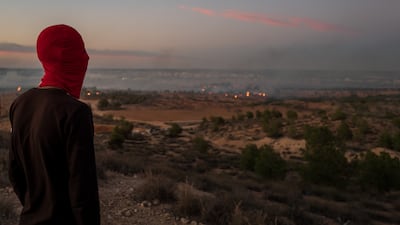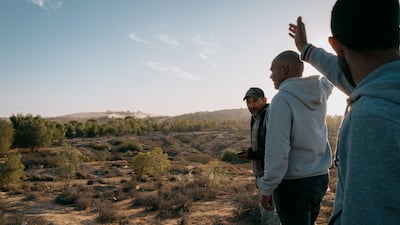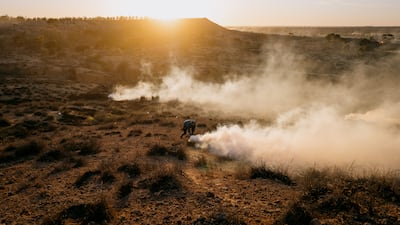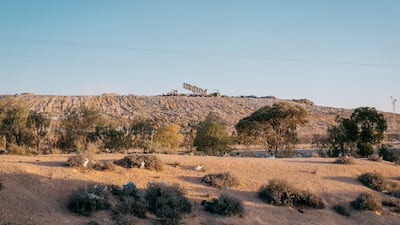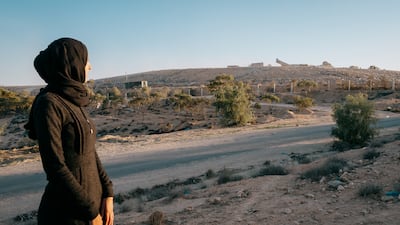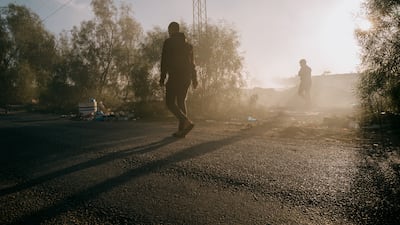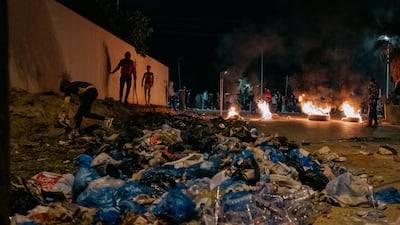As the sun set over Agareb, a small town outside of Tunisia's second city, Sfax, Houyem Abdallah scrambled up a rocky hillside a few kilometres from the village centre. Acrid smoke from burning tyres and tear gas obscured the horizon.
"There. You can see the trucks coming," she said, as she pointed to a column of dust rising from the road in the distance.
The four dump trucks trundling towards Ms Abdallah were headed for Tunisia's second-largest landfill, which has been at the heart of a crisis that has left Sfax rotting in uncollected rubbish for more than a month – and one of her neighbours dead in violent clashes with security forces.
As the trucks raised their hydraulic lifts, tipping tonnes of rubbish on to a growing pile, the young nurse pulled out her phone and started recording.
"They're bringing the garbage in, they're poisoning us," Ms Abdallah said into her phone's camera.
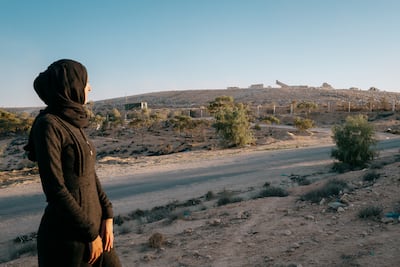
A rotten problem
The landfill at Agareb was supposed to be a near-term solution to a decades-long problem in Tunisia: a rapid rise of solid waste produced in its cities without a strategy to deal with it.
Residents say that when the landfill was opened in 2008 as a controlled site, they were told it would be only a temporary fix to help ease the burden on the large industrial towns on the nearby coast.
"They promised to move it after five years, but here we are 13 years later and it is still open," said Hamdi, one of a group of young men tussling with police outside the landfill Wednesday evening.
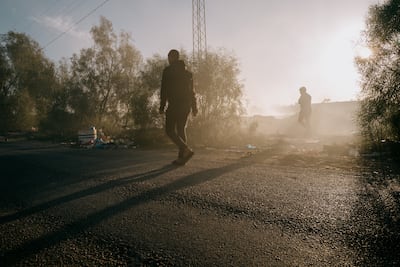
In the years since its opening, the landfill has grown to be the second largest in the country, with 600 tonnes of solid waste arriving every day. So did packs of feral dogs, wild boars and thick clouds of mosquitos that afflicted local residents.
Although the site was only supposed to take in domestic rubbish, the town's residents say they began to find toxic waste among the regular refuse that often blew off trucks or out of the landfill and into their fields.
"We found medical waste, syringes and things, along the side of the road," said Ben Abdi, 51, who lives with his wife and three children between the landfill and the village.
Villagers also started noticing health problems.
"At first we didn't recognise the risks but then we started noticing health issues," said Olfama, 28.
"Everyone knows someone with cancer, a married couple struggling with infertility, or a family where all the kids have asthma."
Kawther, 38, said: "We don't get sick like normal people do. For us a cold is so much more than a cold. We just get sicker."
Activists in the town pressured the government to close the landfill, and on September 27 a temporary order was put in place. Operations ceased abruptly.
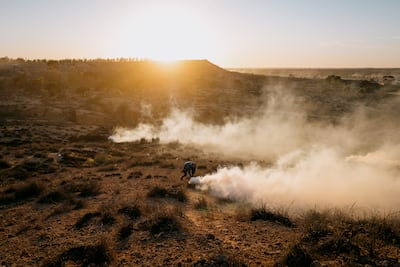
Stench in Sfax
While residents in Agareb cheered the decision, authorities in Sfax were flummoxed. No alternative was put in place for the rubbish from a city of 300,000 residents.
Nidhal Attia, the co-ordinator of the environmental programme at the Heinrich Boll Foundation in Tunisia who researches the waste crisis, said political instability was a major factor.
When a new proposal for managing the landfill was put forward last year, none of the relevant authorities at the Ministry of the Environment "wanted to take the responsibility" for such a complicated project.
With no place to take the rubbish, collection stopped. As the weeks went on, thousands of tonnes of household waste accumulated on the streets, with piles of bags two metres tall in some places. Flies inundated neighbourhoods and the stench became unbearable.
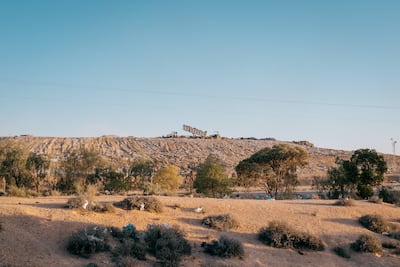
The new Minister of the Environment, Leila Chikhaoui, visited the city in October as outrage grew, but without result.
"There are no immediate solutions for environmental problems in governorate of Sfax," Ms Chikhaoui said, including the landfill in Agareb.
On Monday, without notice, Ms Chikhaoui ordered the landfill to reopen "to reduce health, environmental and economic risks".
Within hours, dozens of trucks were hauling rubbish from Sfax to Agareb and the village's citizens came out to protest.

A test for Kais Saied
After nightfall on Monday, police and security forces descended on Agareb to quell the outraged villagers' protests. They shot canisters of tear gas at a crowd of local activists to try to disperse them from the town's main roundabout.
Abdelrazek Lachhab, an environmental activist among the crowd, died from inhaling the gas, his family and medics said. The Ministry of Interior on Tuesday denied the claim, saying Lachhab died of unrelated causes at his home several kilometres away.
Zubair Belashir said Mr Lachhab, who was his cousin, died in the middle of the crowd that had been "peacefully insisting on taking back our town".
"They think because we are poor they can come in and step on us," Mr Belashir said.
Protesters set the city's police station alight on Tuesday, and President Kais Saied called the army in to try to stem the violence. In response, the powerful labour union called for a general strike on Wednesday.
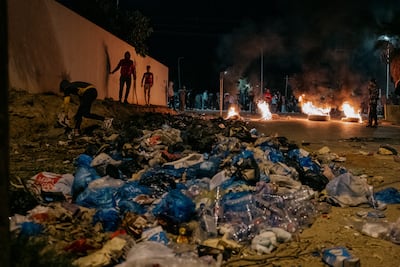
The situation has become a litmus test for President Kais Saied, who promised to close the landfill during his campaign for the presidency in 2019. The aggressive response from security forces to the villagers spurred large protests in Tunis on Wednesday and ire towards the president in a region that strongly backed his consolidation of power in July.
Just outside the landfill on Wednesday night, police pelted a group of young men with tear gas as they jeered the incoming rubbish lorries. More than 30 canisters were fired in 10 minutes.
"We supported Kais Saied but he's betrayed us," said a young man in a balaclava, between coughs.
For the security forces, keeping the landfill open at all costs is priority. A commanding officer in the National Guard said the force his team used was warranted.
"They have to keep the landfill open," he said. "It's a temporary solution that will lift the burden from the whole region."
